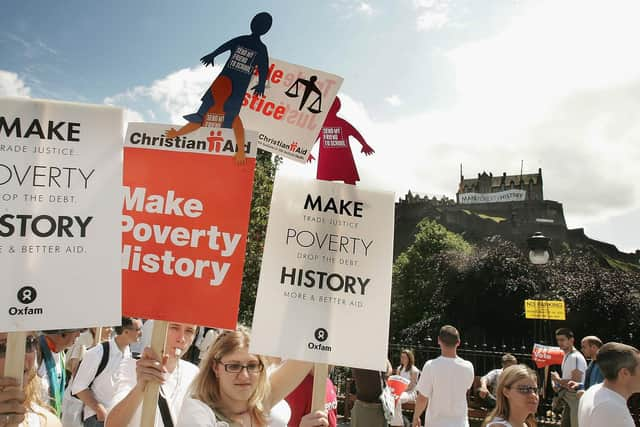Scotland's poorest families are being pushed deeper into poverty by debts to councils and other public bodies – SallyAnn Kelly
Every day at children’s charity Aberlour, we witness the heart-wrenching impact of Scotland's debt crisis on our most disadvantaged families. These are families who struggle to make ends meet, who agonise over whether to pay their bills or put food on the table for their children. It's a daily battle against poverty that far too many are losing.
What compounds this crisis is the burden of debt owed to public bodies. From council tax to housing arrears to school meal payments, our poorest families find themselves drowning in a sea of obligations they can ill afford. As a country we cannot sit by and watch families and children having their lives hollowed out and life chances detrimentally impacted by debt that is owed to the state.
Advertisement
Hide AdAdvertisement
Hide AdThat is why we set up a unique and visionary pilot project in Tayside. This has shed light on the extent of this issue, with a staggering 75 per cent of the debt owed by struggling families being to public bodies. But it has also shone a light on how we can help people caught up in that vicious cycle of unmanageable debt.


Think about it: these are families already deemed by the state to be living on the edge. Yet, they're expected to prioritise repaying public debt over meeting the most basic needs of their children. It's a cruel paradox that drives families deeper into poverty.
Escaping the trap
But there is hope. Our pilot project has pioneered a new approach, one that prioritises compassion and support over punitive debt collection measures. Our ground-breaking approach involves paying off problematic debts to public bodies.
The results speak for themselves: reduced anxiety, less stress, and a renewed sense of financial stability for families who once felt trapped in a cycle of debt. Moreover, by tackling the problem head-on, we've been able to prevent crises such as homelessness and the need for children to be accommodated outside of their homes.
Our efforts haven't gone unnoticed. In December, in response to Aberlour’s campaign, the First Minister announced the one-year write-off of school meal debt, a victory for the 30,000 children and their families it will support. The recognition this was a problematic debt for so many strengthens our argument that this move must be made permanent.
Compassion to the fore
Moreover, we need comprehensive reform of public bodies’ debt-collection practices and proactive measures from governments to address the root causes of the debt crisis faced by too many families. Our Tayside model offers a blueprint for change. By prioritising the well-being of families over repayment, we've shown it's possible to lift families who felt trapped by debt out of poverty.
It's time for Scotland to embrace a new approach, one that puts compassion at the forefront of our efforts to support struggling families. Let's build a future where no family has to choose between putting food on the table and paying off their debts. Let's build a future where every child has the opportunity to thrive, free from the shackles of poverty and debt.
That is why we are asking the Scottish Government to consider the work of our Tayside pilot and use it to help create a new way of collecting debt while also looking at ways to prevent the accrual of debt in the first place.
SallyAnn Kelly is Aberlour’s chief executive
Comments
Want to join the conversation? Please or to comment on this article.